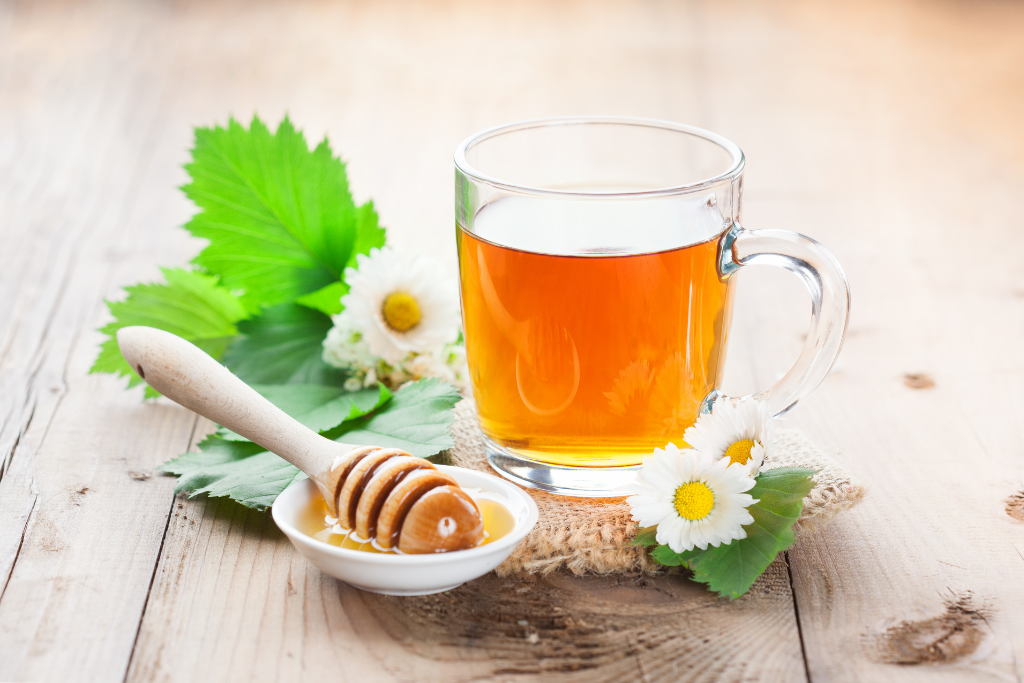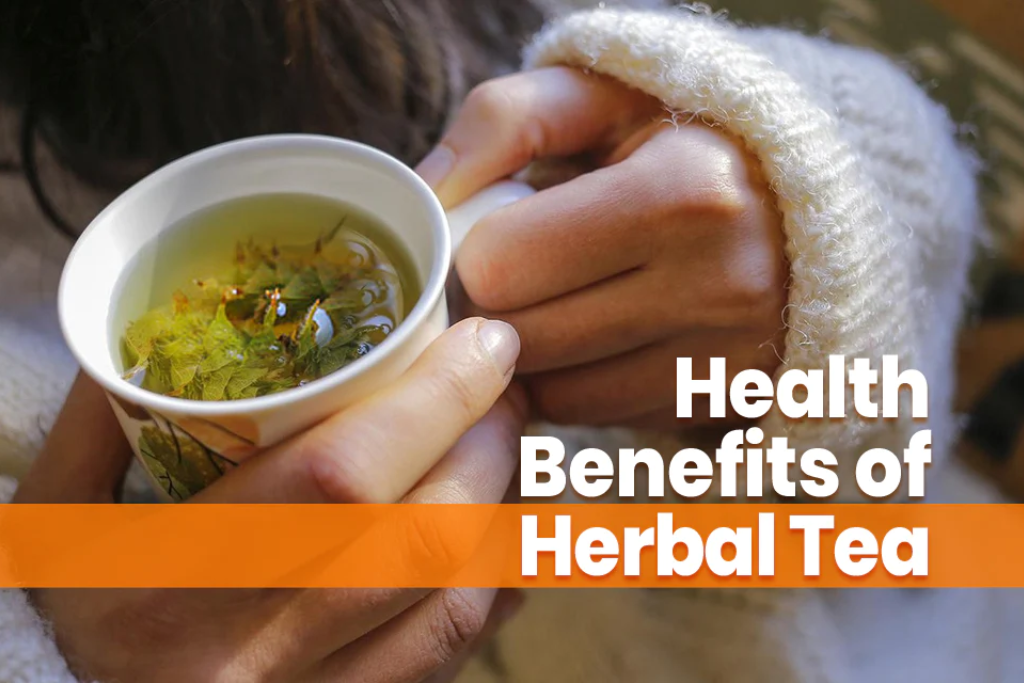Are you a young person looking to boost your health and wellness? Look no further than the humble herbal tea! Packed with natural goodness, herbal teas are not only delicious but also offer a myriad of benefits for your mind and body. Whether you’re seeking relaxation, improved digestion, or an immunity boost, incorporating herbal tea into your daily routine is a simple yet effective way to take care of yourself. In this blog post, we’ll explore what exactly herbal tea is, delve into its incredible benefits, highlight some of the best options for young people, and provide tips on how to make it a staple in your diet. Get ready to sip on ultimate wellness as we dive into the world of herbal tea!

What is herbal tea?
What exactly is herbal tea? Well, despite its name, herbal tea isn’t technically “tea” in the traditional sense. Unlike black or green tea, which comes from the Camellia sinensis plant, herbal teas are made by infusing various herbs and botanical ingredients in hot water. This means that they’re caffeine-free and offer a wide range of flavors and aromas.
Herbal teas have been used for centuries across different cultures for their therapeutic properties. From calming chamomile to invigorating peppermint, each herb brings its own unique benefits to the table. Whether you’re looking to relax after a long day or boost your immune system during the cold season, there’s an herbal tea out there for everyone.

One of the great things about herbal tea is its versatility. You can find blends that target specific health concerns such as digestion, stress relief, or even skin health. Plus, many of the herbs used in these teas contain antioxidants and other compounds that can support overall wellness.
The best part? Herbal teas are incredibly easy to make at home! Simply steep your chosen herbs in hot water for a few minutes and enjoy the soothing aroma and flavorful infusion. With so many varieties available, you’ll never run out of options when it comes to exploring new flavors on your wellness journey.
So why not add some excitement to your daily routine with a cup of delicious herbal tea? Whether you prefer it hot or iced, this natural beverage offers more than just hydration; it offers an opportunity to nourish your body from within with every sip.
The benefits of herbal tea
Herbal tea has been enjoyed for centuries, and it’s no wonder why. This refreshing beverage not only tantalizes the taste buds but also offers a multitude of health benefits. Unlike traditional tea made from Camellia sinensis leaves, herbal teas are brewed using various herbs, flowers, fruits, and spices.
One of the greatest advantages of herbal tea is its ability to promote relaxation and reduce stress. Many herbal teas contain soothing ingredients such as chamomile or lavender that have natural calming properties. Sipping on a warm cup of herbal tea after a long day can help melt away tension and provide much-needed tranquility.

In addition to promoting relaxation, herbal teas are known for their potential digestive benefits. Certain herbs, like peppermint or ginger, can aid in digestion by reducing bloating and alleviating stomach discomfort. These teas may also help stimulate the production of digestive enzymes, making them an excellent choice after a heavy meal.
Another perk of incorporating herbal tea into your diet is its immune-boosting properties. Many of the herbs used in these teas contain antioxidants that help strengthen the body’s defense against illnesses. For example, echinacea- or elderberry-based teas are often consumed during cold seasons to support immune health.
Furthermore, some studies suggest that certain types of herbal tea may assist with weight management by boosting metabolism and suppressing appetite. Green tea, specifically, has gained popularity due to its potential fat-burning effects.
With so many different flavors available—from fruity blends to aromatic floral combinations—finding the right herbal tea that suits your taste preferences is easy! Whether you enjoy it hot or iced, adding this delightful beverage to your daily routine can bring both pleasure and significant health benefits.
So why not make room in your pantry for some flavorful herb-infused goodness? Start exploring the world of herbal teas today—your mind and body will thank you!
The best herbal teas for young people
When it comes to herbal teas, there are a wide variety of options available that are perfect for young people. These teas not only taste delicious but also offer numerous health benefits. So, let’s explore some of the best herbal teas that every young person should consider incorporating into their daily routine.
- Chamomile Tea: Known for its calming properties, chamomile tea can help reduce stress and promote better sleep. It is also gentle on the stomach, making it an excellent choice for those with digestive issues.
- Peppermint Tea: Refreshing and invigorating, peppermint tea is great for improving digestion and relieving bloating or stomach discomfort. It can also provide relief from headaches and boost energy levels.
- Ginger Tea: With its warming properties, ginger tea aids in digestion and alleviates nausea or indigestion symptoms. It has anti-inflammatory effects as well, which can be beneficial for those who engage in physical activities.
- Green Tea: Packed with antioxidants, green tea boosts metabolism and supports weight management efforts, while providing a natural source of caffeine for an energy boost without the jitters.
- Rooibos Tea: This caffeine-free herbal tea contains high levels of antioxidants and may assist with skin health due to its potential anti-aging properties. It also promotes relaxation without interfering with sleep patterns.
Incorporating these herbal teas into your diet can be as simple as swapping out your regular cup of coffee or sugary beverage with a comforting mug of one of these flavorful brews each day!
How to incorporate herbal tea into your diet
Incorporating herbal tea into your diet is a simple and enjoyable way to reap all the benefits it has to offer. Here are some easy ways to make herbal tea a staple in your daily routine:
- Start your day with a cup of herbal tea: Instead of reaching for that morning coffee, opt for a soothing cup of herbal tea. It will provide you with a gentle energy boost without the jitters or crashes that can come from caffeine.
- Replace sugary beverages with herbal tea: If you find yourself craving sugary drinks throughout the day, try swapping them out for flavorful and refreshing herbal teas. Not only will this help reduce your sugar intake, but it will also keep you hydrated.
- Enjoy herbal tea as an afternoon pick-me-up. When that mid-afternoon slump hits, brew yourself a revitalizing herbal tea instead of reaching for another cup of coffee or an unhealthy snack. The tea’s natural herbs and botanicals can help rejuvenate your body and mind.
- Use herbal teas as part of your nighttime routine. Many herbs in specific blends have calming properties that promote relaxation and improve sleep quality. Incorporate these teas into your bedtime routine by sipping on them before bed or using them as part of a wind-down ritual.
- Get creative with recipes: Herbal teas aren’t just limited to being enjoyed hot in a mug; they can also be incorporated into various recipes! Experiment with using brewed iced teas as bases for smoothies or adding floral flavors to baked goods like muffins or cakes.
Remember, when incorporating any new food or beverage into your diet, it’s important to listen to your body and consult healthcare professionals if needed.
By making herbal tea part of your daily routine, you’ll not only be enjoying delicious flavors but also reaping numerous health benefits along the way.
So why wait? Grab yourself some aromatic blends today and start experiencing the wonders of herbal tea for yourself!
Check out “The Importance of Eating Healthy for Student Success.” When students eat well, they are more likely to have better focus, memory, and energy. This can help them do better in school. They are also less likely to miss school because they are sick, and they might have more energy to do things outside of school.

